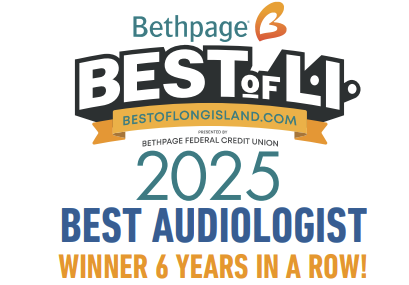
Hearing loss is currently a public health problem and scientists think that it will become much more common for individuals in their 20’s to be wearing hearing aids.
The majority of individuals think of the elderly when they consider extreme hearing loss. But all age groups have had a recent increase in hearing loss during the last few years. Increased hearing loss in all ages further shows that hearing loss isn’t an “aging problem,” but a growing epidemic.
With adults 20 and up, scientists forecast that hearing loss will increase by 40%. The healthcare community sees this as a significant public health problem. One in five individuals is, according to John Hopkins medical research, having a hard time communicating due to severe hearing loss.
Hearing loss is rising amongst all age groups and here is why experts think that is.
Added Health Issues Can be The Outcome of Hearing Loss
Profound hearing loss is an awful thing to go through. Communication is frustrating, exhausting, and challenging every day. It can cause individuals to stop doing what they enjoy and disengage from family and friends. If you don’t seek help, it’s nearly impossible to be active while experiencing significant hearing loss.
It’s not only diminished hearing that individuals with untreated hearing loss suffer from. They’re a lot more likely to experience:
- Other acute health problems
- Anxiety
- Depression
- Injuries from recurring falls
- Dementia
- Cognitive decline
They’re also more likely to have problems with their personal friendships and might have trouble getting basic needs met.
people who experience hearing loss are impacted in their personal lives and could also have increased:
- Insurance costs
- Accident rates
- Disability rates
- Needs for public support
- Healthcare costs
We need to fight hearing loss as a society because as these factors show, hearing loss is a significant obstacle.
Why Are Multiple Age Groups Experiencing Increased Hearing Loss?
The current rise in hearing loss can be attributed to a number of factors. One factor is the increased occurrence of common conditions that can cause hearing loss, including:
- Obesity
- Diabetes
- Cardiovascular disease
- High blood pressure
- Anxiety and unmanaged stress
- Poor diet and a lack of consistent exercise
More individuals are suffering from these and associated disorders at younger ages, which contributes to added hearing loss.
Increased prevalence of hearing loss also has a lot to do with lifestyle. Exposure to loud sounds is more common, specifically in recreation areas and work environments. We’re being exposed to loud sounds and music in more places and modern technology is getting louder. It’s frequently the younger age groups who have the highest amount of noise exposure in:
- Shooting ranges
- Bars, clubs, and concerts
- Gyms
- Factories
Also, many people are cranking the volume of their music up to dangerous levels and are using earbuds. And more people are managing pain with painkillers or taking them recreationally. Opiates, ibuprofen, aspirin, and acetaminophen will increase your risk of hearing loss especially if used over a long time periods.
How is Society Reacting to Hearing Loss as a Health Crisis?
Hearing loss is getting the attention of local, national, and world organizations. They’re educating the public as a measure to slow this growing trend with the following:
- Risk factors
- Treatment options
- Prevention
- Research
Individuals are being urged by these organizations to:
- Wear their hearing aids
- Have their hearing examined sooner in their lives
- Know their degree of hearing loss risk
Hearing loss will get worse with any delay in these measures.
Solutions are being looked for by government organizations, healthcare providers, and researchers. They’re also pursuing ways to bring hearing-loss associated costs down. This will help increase accessibility to advanced hearing technologies that significantly enhance lives.
Comprehensive approaches are being created by the World Health Organization (WHO) and other organizations as well as scientists. They are incorporating education, awareness, and health services to reduce the risk of hearing loss in underserved groups.
Among their efforts, they’ve created research-based guidelines for communities, which help local leaders understand the health impacts of noise. They work with communities to decrease resident’s noise exposure and teach what safe levels of noise are. In addition, they are furthering research on how opiate use and abuse can raise the risk of hearing loss.
Can You do Anything?
Hearing loss is a public health issue so remain informed. Share practical information with other people and take action to slow the advancement of your own hearing loss.
If you think you might be dealing with hearing loss, have your hearing examined. Be sure you get and wear your hearing aids if you find that you need them.
Preventing hearing loss is the main goal. When you wear your hearing aids, you help people understand they’re not alone. You’re bringing awareness about the problem of hearing loss in your community. Policies, attitudes, and actions will then be changed by this awareness.







